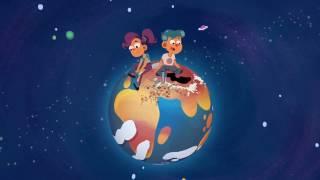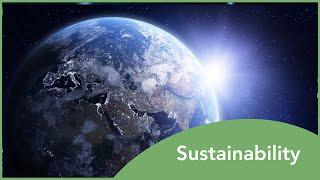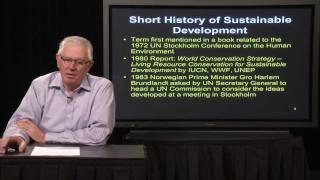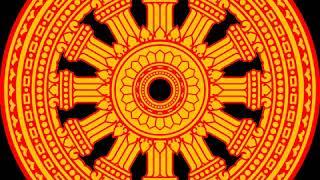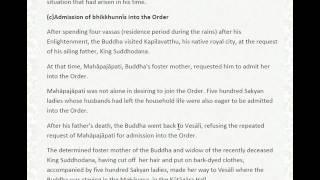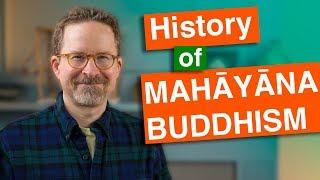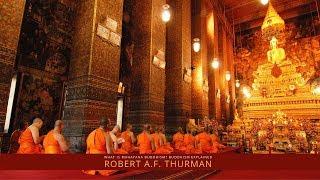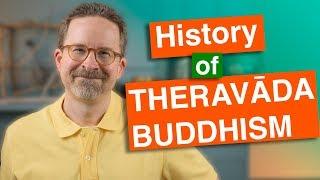How religion turned American politics against science
New videos DAILY: https://bigth.ink
Join Big Think Edge for exclusive video lessons from top thinkers and doers: https://bigth.ink/Edge
----------------------------------------------------------------------------------
In the last 30 years religion has radicalized American politics and seriously harmed the perception of science, says journalist and author Kurt Andersen. This can be directly tied to the rise of the Christian Right in the 20th century. To see this, you only have to look at the response to the same question posed to Republican presidential candidates over three election cycles, from 2008 to 2016: "Do you believe in Darwinian biological evolution?" In 2008, the majority answered yes. In 2012, there were notably less. In 2016? There was only one of 17 candidates who said he did—Jeb Bush, and even he began to backpedal as he answered. "I don’t believe all those people believed what they said," says Andersen, "I don’t think all of them disbelieve in evolution, just some of them—but they were all obliged to say 'yes' to falsehood and magical thinking of this religious kind, and that’s where it becomes problematic." From climate change to Creationism and outright conspiracy theories, Andersen points to how the Republican party has come to increasingly incorporate fantasy and wishful untruths into its approach to social, economic, and foreign policy—and it's turning America into an anti-science spectacle. Kurt Andersen is the author of Fantasyland: How America Went Haywire.
----------------------------------------------------------------------------------
KURT ANDERSEN
Kurt Andersen, host of Studio 360 on NPR, is a journalist and the author of the novels Hey Day, Turn of the Century, The Real Thing, and his latest non-fiction book Fantasyland: How America Went Haywire: A 500-Year History. He has written and produced prime-time network television programs and pilots for NBC and ABC, and co-authored Loose Lips, an off-Broadway theatrical revue that had long runs in New York and Los Angeles. He is a regular columnist for New York Magazine, and contributes frequently to Vanity Fair. He is also a founder of Very Short List.
Andersen began his career in journalism at NBC's Today program and at Time, where he was an award-winning writer on politics and criminal justice and for eight years the magazine's architecture and design critic. Returning to Time in 1993 as editor-at-large, he wrote a weekly column on culture. And from 1996 through 1999 he was a staff writer and columnist for The New Yorker. He was a co-founder of Inside.com, editorial director of Colors magazine, and editor-in-chief of both New York and Spy magazines, the latter of which he also co-founded.
From 2004 through 2008 he wrote a column called "The Imperial City" for New York (one of which is included in The Best American Magazine Writing 2008). In 2008 Forbes. com named him one of The 25 Most Influential Liberals in the U.S. Media. Anderson graduated magna cum laude from Harvard College, and is a member of the boards of trustees of the Cooper-Hewitt National Design Museum, the Pratt Institute, and is currently Visionary in Residence at Art Center College of Design in Pasadena. He lives with his family in New York City.
----------------------------------------------------------------------------------
TRANSCRIPT:
Kurt Andersen: In 2008, the big Republican presidential candidates were asked: "How many of you believe in Darwinian biological evolution?" Two-thirds or three-quarters said, "I do." In 2012, the same question was asked, same group of people—Republican presidential candidates—and it was already down to a third. In 2016, the 17 main candidates for the Republican nomination were asked: "Do you believe in evolution?" One, Jeb Bush, brave Jeb Bush, said he did—"but," he said, walking it back even as he said it, “I’m not sure it should be taught in our public schools, and if it is, it should be taught along with Creationism.” So from 2008 to 2016, that was the change and that change is—I don’t believe all those people believed what they said; I don’t think all of them disbelieve in evolution, just some of them—but they were all obliged to say yes to falsehood and magical thinking of this religious kind and that’s where it becomes problematic.
America has always been a Christian nation. That meant a very different thing 100 years ago or even 50 years ago than it means today. I grew up not going to church very often at all and not with much religious education, but all of my friends were weekly, regular churchgoers of various kinds.
Christian Protestant religion became extreme, it became more magical and supernatural in its beliefs and practices in America than it had been in hundreds of years and more so t...
For the full transcript, check out https://bigthink.com/videos/kurt-andersen-how-religion-turned-american-politics-against-science
How religion turned American politics against science | Kurt Andersen | Big Think
Be the first to comment


